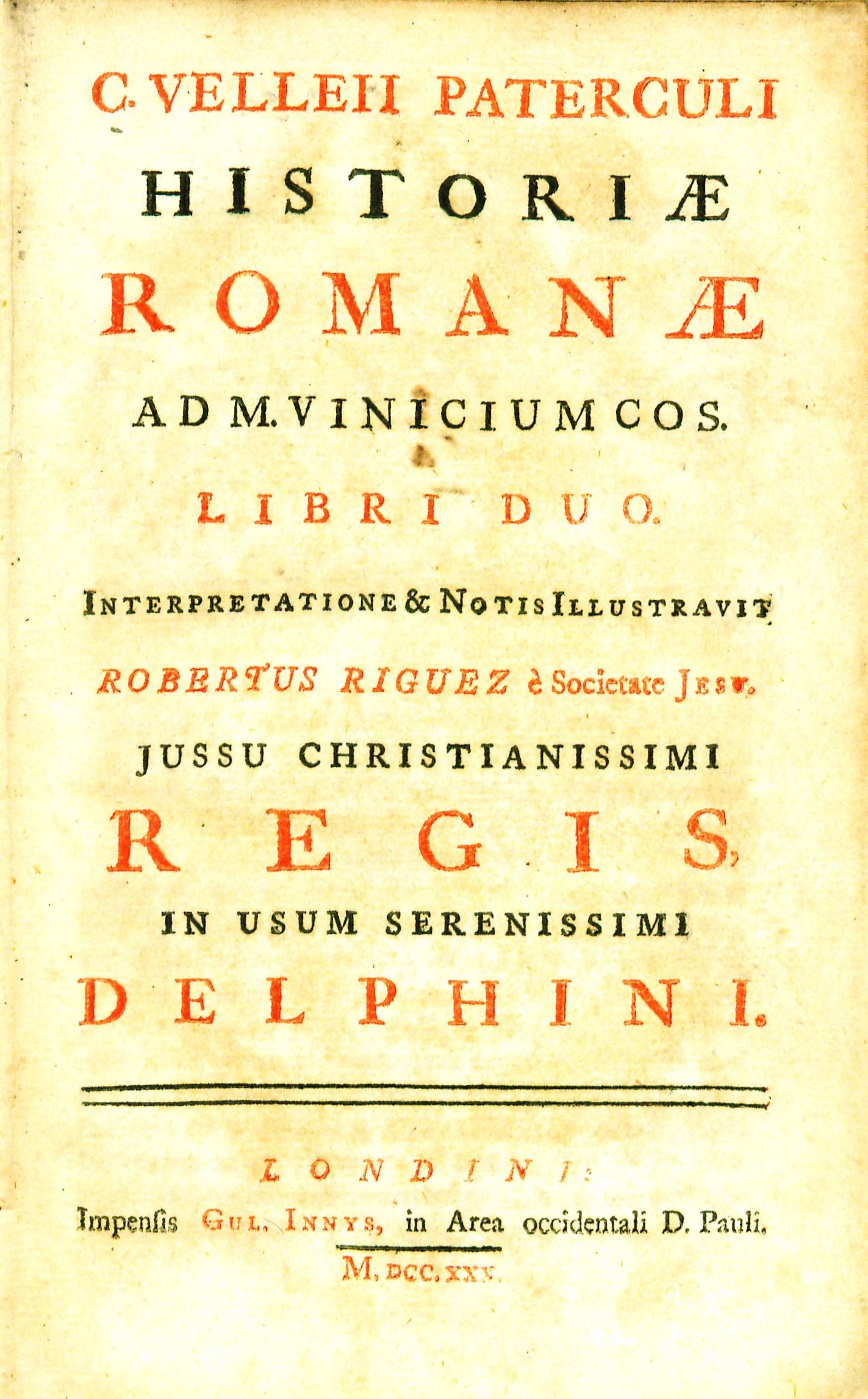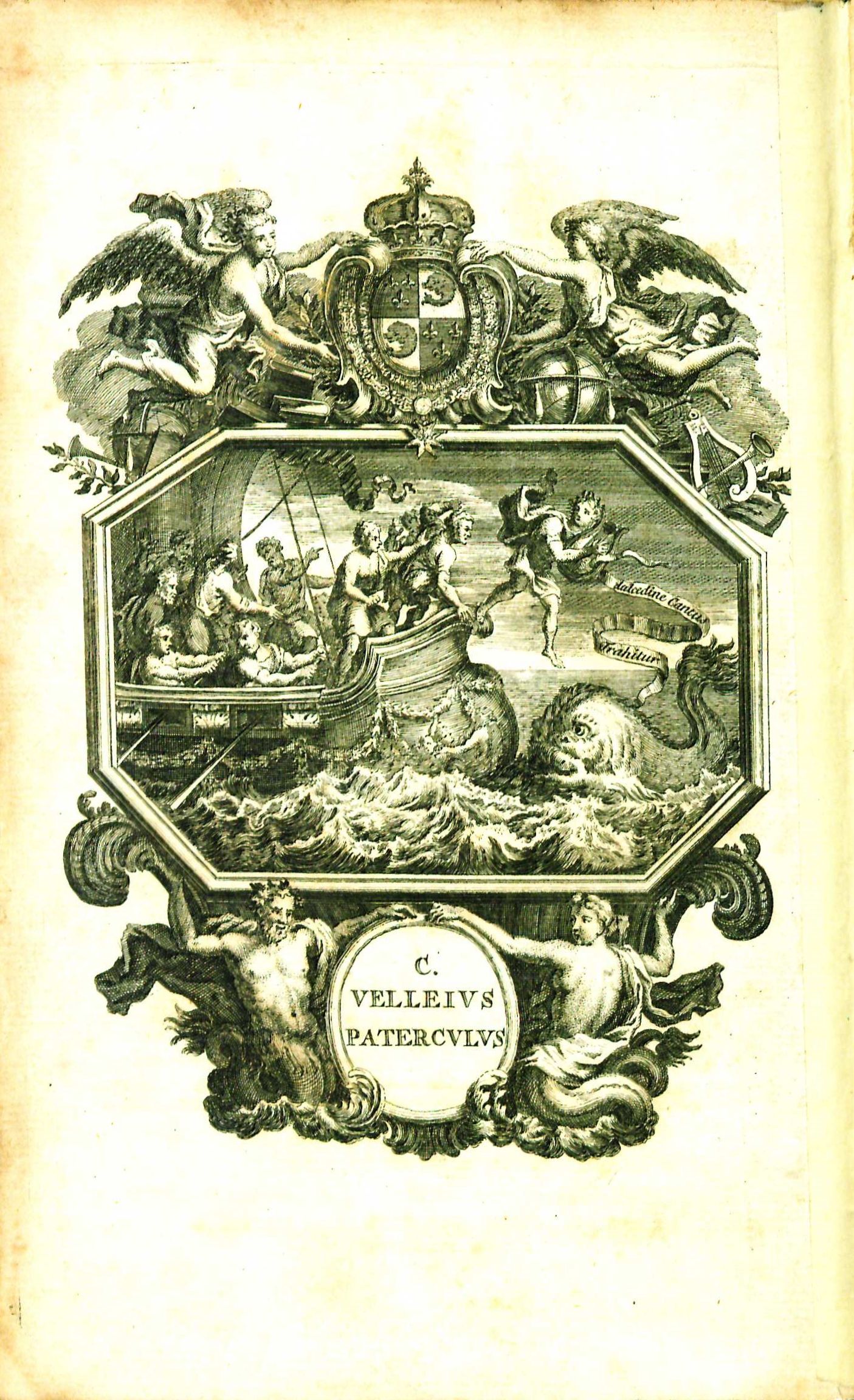Difference between revisions of "C Velleii Paterculi Historiae Romanae"
Ammorris01 (talk | contribs) |
|||
| Line 29: | Line 29: | ||
==See also== | ==See also== | ||
*[[George Wythe Room]] | *[[George Wythe Room]] | ||
| + | *[[Jefferson Inventory]] | ||
*[[Wythe's Library]] | *[[Wythe's Library]] | ||
</div> | </div> | ||
| Line 36: | Line 37: | ||
[[Category:Ancient History]] | [[Category:Ancient History]] | ||
[[Category:George Wythe Collection at William & Mary's Wolf Law Library]] | [[Category:George Wythe Collection at William & Mary's Wolf Law Library]] | ||
| + | [[Category:Thomas Jefferson Randolph's Books]] | ||
[[Category:Titles in Wythe's Library]] | [[Category:Titles in Wythe's Library]] | ||
[[Category:EDITED]] | [[Category:EDITED]] | ||
Revision as of 17:05, 14 September 2015
by Gaius Velleius Paterculus
| C. Velleii Paterculi Historiae Romanae | |
|
Title page from C. Velleii Paterculi Historiae Romanae, George Wythe Collection, Wolf Law Library, College of William & Mary. | |
| Author | Gaius Velleius Paterculus |
| Published | Londini: Impensis Gul. Innys ... |
| Date | 1730 |
| Language | Latin |
| Pages | 4, 328 |
| Desc. | 8vo. (19 cm.) |
| Location | Shelf L-2 |
Historiae Romanae ad M. Vinicium cos. Libri Duo begins with Greek mythology and chronicles Roman history. Esteemed historian Lord Macaulay said of it: "I hardly know any historical work of which the scale is so small and the subject so extensive."[3] Almost all of Book I is lost. Book II begins with the razing of Carthage in 146 B.C.E., an event which Velleius saw as a turning point in Roman history. He discusses the careers of Julius Caesar, Augustus, and Tiberius at length.
Evidence for Inclusion in Wythe's Library
Listed in the Jefferson Inventory of Wythe's Library as "Velleius Paterculus. Delph. 8vo." and given by Thomas Jefferson to his grandson Thomas Jefferson Randolph. The Brown Bibliography[4] lists the 1730 Delphini edition published in London while George Wythe's Library[5] on LibraryThing simply states "Precise edition unknown." The Wolf Law Library followed Brown's recommendation and purchased the edition published in London in 1730.
Description of the Wolf Law Library's copy
Bound in contemporary panelled calf and recased retaining the original gilt-ruled and decorated backstrip.
View the record for this book in William & Mary's online catalog.
References
- ↑ A. J. Woodman, "Velleius Paterculus," Who’s Who in the Classical World (Oxford: Oxford University Press, 2003), accessed October 10, 2014.
- ↑ Ibid.
- ↑ George O. Trevelyan, Life and Letters of Lord Macaulay (Lemmermann & Company, 1876), 304.
- ↑ Bennie Brown, "The Library of George Wythe of Williamsburg and Richmond," (unpublished manuscript, May, 2012, rev. May, 2014) Microsoft Word file. Earlier edition available at: https://digitalarchive.wm.edu/handle/10288/13433.
- ↑ LibraryThing, s.v. "Member: George Wythe," accessed on February 3, 2015.

